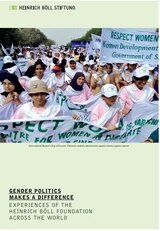Perspectives #4 November 2012 - Qatar: aspirations and realties - Conflict & Intl. Politics
November 27, 2012
In the wake of the Arab Revolts, the political landscape of the region is changing, fast. Main actors of the old order have entered processes of political transition and are determining – or struggling to determine – the future course of their internal and regional politics.
In the Arab Gulf Region, one political actor, in particular, is becoming more visible, seemingly more engaged in navigating these uncertainties and in filling the gaps in this political scene: The state of Qatar.
In terms of its native population, Qatar is tiny. Only some 250,000 citizens possess Qatari passports – but they are fabulously wealthy.
The people of Qatar produce the highest Gross Domestic Product per capita worldwide. While at the same time, some 1.5 million residents who entered the country as migrant workers lack many of the most basic rights.
For various reasons that the authors in this issue of Perspectives MENA explore, this little peninsular nation seems very much to be taking the leading role in Arab politics, a place customarily reserved for its much larger neighbors, like Saudi Arabia. Indeed, from the onset of the Arab Spring protests, Qatar took sides with what looked like to many a healthy lack of reserve. The network that the Emir of Qatar built, Al-Jazeera, was vital in its support of people’s power in Tunisia and in Egypt. In Libya, Qatar went much further, currying favor within the Gulf Cooperation Council and the Arab League for a military intervention and becoming the only Arab state to openly participate in it.
After an initial hesitance, Qatar also steadily backed the anti-government rebels in Syria by providing financial and military aid.
At the same time, Qatar is acting as a prominent global player by developing its capital as a hub for international “mega events,” not least the 2022 football World Cup whose finals will be played in Doha, and the United Nation’s climate change conference which will be held at the end of 2012.
In almost all of these endeavors, the newly acquired role of the Arab state with the smallest population is being increasingly met with criticism. Some of the persistently asked questions throughout the Middle East and increasingly North Africa are: What are the motivations behind its – at times – contradictory actions? Is Qatar meddling in the internal affairs of other Arab states, with all of the attendant negative implications? To which extent does it support Islamist trends of various ideological stripes that may be enhancing violence and intolerance?
And there are also other questions posed in this edition which relate to how Qatar – or the political elite in Qatar more properly – treats its own citizens and the migrant workers who are building its vision of the future. Are its practices and its own political system compatible with the ideas it publicly seems to support?
We leave it to the reader to determine whether our authors have adequately opened up what we believe is a vital space for understanding and engaging a critical driver of future possibilities and challenges.
Perspectives: Political Analysis and Commentary from the Middle East & North Africa is a quarterly journal dedicated to highlighting research and debate from authors who live and work in the region. It is now jointly edited and published by the three HBS offices located in Tunis, Beirut and Ramallah. We welcome comments and criticism, which can be directed to us via the contact information on the back page of this volume.
